Ever felt like you’re shouting into the digital void, crafting content after content, only to see minimal returns? Have you ever wondered why some brands have content that sizzles, engages, and converts, while others simply fizzle out? The good news: you’re about to uncover content marketing hacks that the pros swear by.
Brands that prioritize content marketing witness 6x higher conversion rates. It’s not just about churning out articles or social media posts; it’s about crafting compelling narratives that resonate with your audience. When done right, effective content marketing can directly influence consumer behavior to increase sales.
We’ll reveal how. From diving deep into crafting catchy headlines, to leveraging the spellbinding power of storytelling to mining the gold in user-generated content. We’ll also touch upon the significance of interactive content, the magic behind powerful CTAs, and the art of collaborative content creation with influencers.
By the end? It’s not just about elevating numbers, it’s about revolutionizing your entire content approach. So, stick around and get ready to unearth the secrets, statistics, and strategies that will redefine your brand’s content journey.
Let’s get started.
13 Content Marketing Hacks To Attract More Customers
Whether you’re a seasoned content marketer or just starting, these hacks are your golden ticket to standing out in the vast digital arena. Integrate these strategies into your content marketing efforts to not just participate in the content game but to dominate it. Let these proven hacks guide your path to unmatched content marketing.
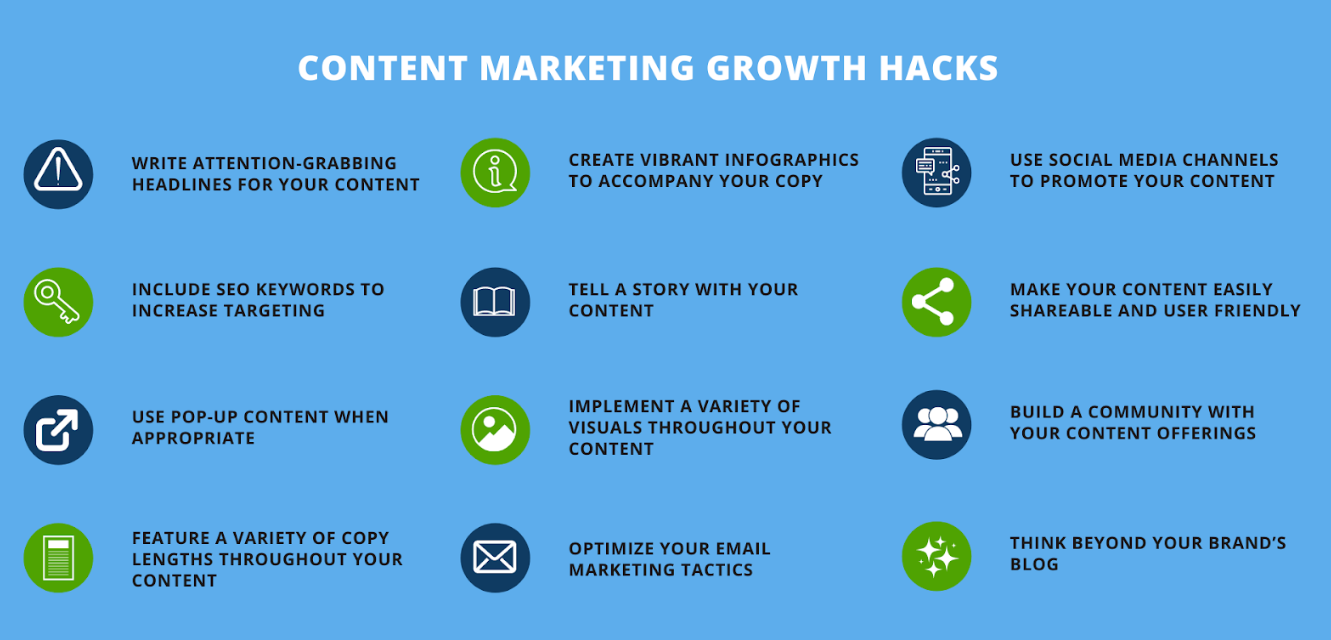
1. Create Compelling Headlines
While quality content retains the audience, it’s the magnetic pull of a well-crafted headline that initially attracts and captivates them. In digital marketing, headlines serve as the “first impression.” It determines if a content piece gets clicked on or glossed over. Simply put, it’s the gateway to the content that entices readers to delve deeper.
A powerful headline can dramatically increase engagement rates, ensuring that the valuable content beneath it doesn’t go unnoticed. Moreover, it boosts search engine visibility when optimized correctly. Pick a hot topic for your blog post and start creating catchy headlines using the following content hacks:
- Keep It Clear & Concise: Overly long or vague headlines can confuse readers. Go for clarity and simplicity.
- Include Current Year: Adding the current year to blog posts’ titles boosts relevance and improves click-through rates by 36%.
- Leverage Emotional Appeal: Words that evoke emotion, like “unbelievable,” “astonishing,” or “essential,” can draw readers in.
- Ask Questions: Posing a question can pique curiosity. “Why is Content Marketing Essential?” will prompt readers to delve in for answers.
- Utilize Numbers & Data: Headlines like “7 Proven Strategies” or “Increase Sales by 50%” can be more captivating as they offer concrete value.
- Use Action Words: Verbs can make your content headline more dynamic and actionable. For instance, “Discover” or “Unearth” can be more enticing than passive terms like “Learn about” or “Find out”.
Let’s have a look at this headline:“Yard Management Systems: A Guide and 4 Popular Options”. It’s clear, concise, and effective. Firstly, by placing “Yard Management Systems” at the beginning, it immediately communicates the article’s topic. The phrase “A Guide” then gives the content direction, suggesting an instructional or informational nature.
Furthermore, the addition of “4 Popular Options” adds specificity, indicating to readers that they can expect a select list of notable systems. Overall, the headline is straightforward and easily digestible, setting clear expectations for potential readers.
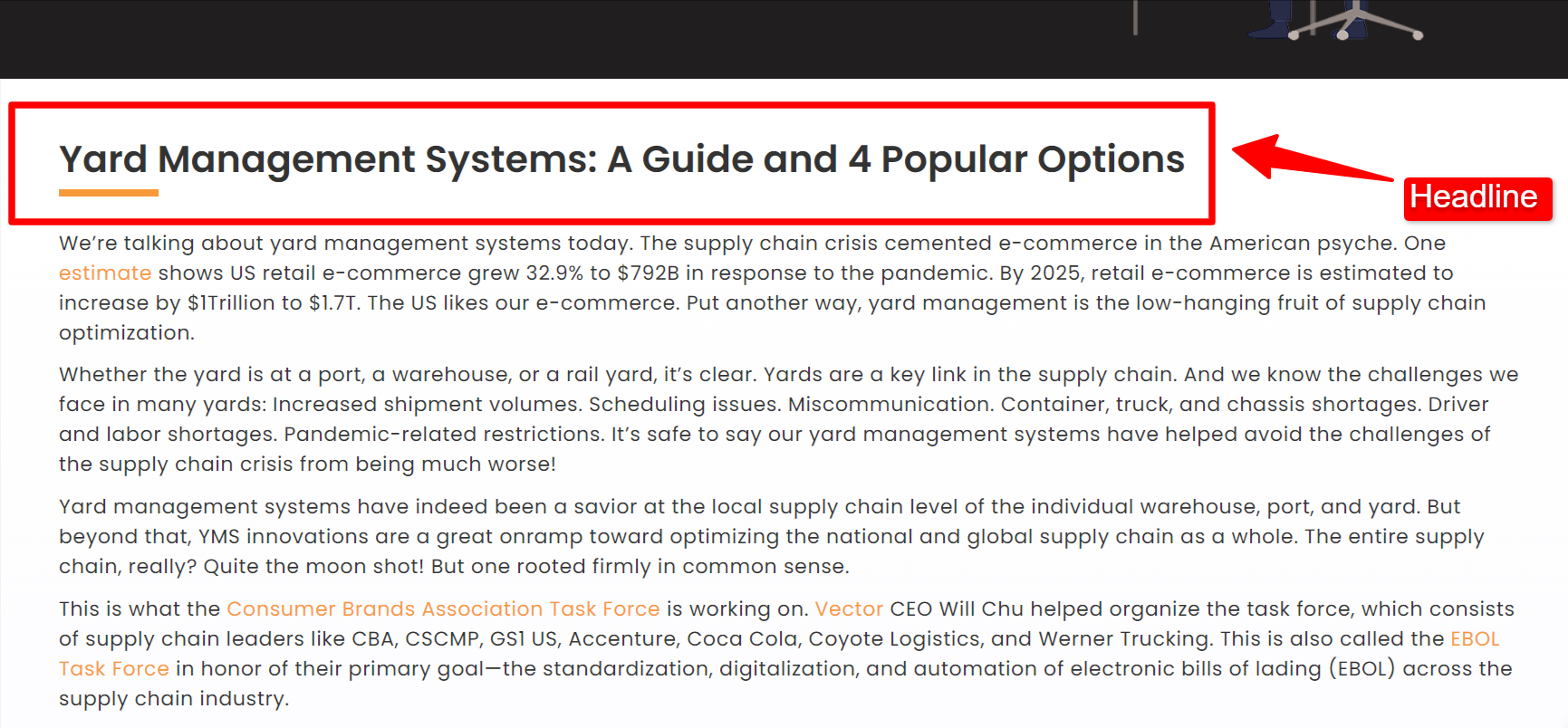
Image Source
2. Write Well-Researched Content
Crafting an effective content marketing strategy isn’t about flooding the web with articles. It relies on delivering trustworthy, relevant pieces that offer value. With the business industry shifting rapidly towards multimedia channels, understanding the difference between content marketing strategies and mere content creation attempts becomes crucial.
In-depth articles, particularly those grounded in credible sources and data are more credible and trustworthy. Thoroughly researched content also makes difficult topics easy to understand. But just offering facts isn’t enough. Incorporating emotional marketing tactics and video content can draw readers in.
For example, this article titled, “New Study Finds Ocean Pollution a Threat to Human Health” blends well-researched, factual content by referencing a “new study,” ensuring evidence-based information. The terms “Ocean Pollution” and “Threat to Human Health” introduce an emotional touch, evoking concern about the direct impact of pollution on our well-being.
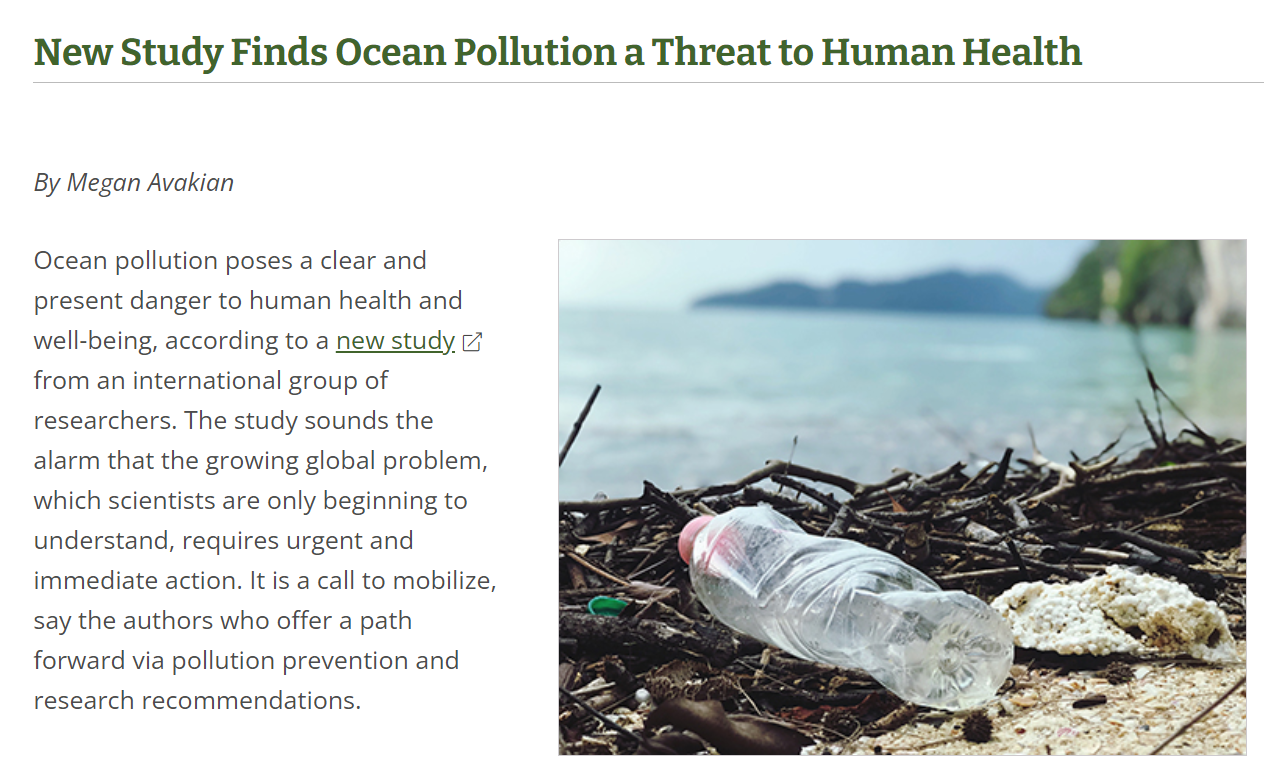
On top of that, search engines prioritize high-quality and authoritative content. Citing authoritative sources can improve your SEO ranking, giving increased visibility and organic traffic.
Remember to always update your blog content regularly to ensure the blog URL is optimized for SEO. This will paint a clearer picture for your audience about the depth of your knowledge, especially if you’re targeting B2B companies.
How to enhance this? Here are 3 effective content marketing hacks:
- Diverse Sources: Don’t just rely on one type of source. Incorporate insights from academic journals, entertainment industry reviews, expert interactions, and more.
- Fact-Checking: Before hitting publish, take careful consideration to make sure every detail is accurate.
- Cite Your Sources: It’s not only about intellectual honesty; it’s about reinforcing your authenticity.
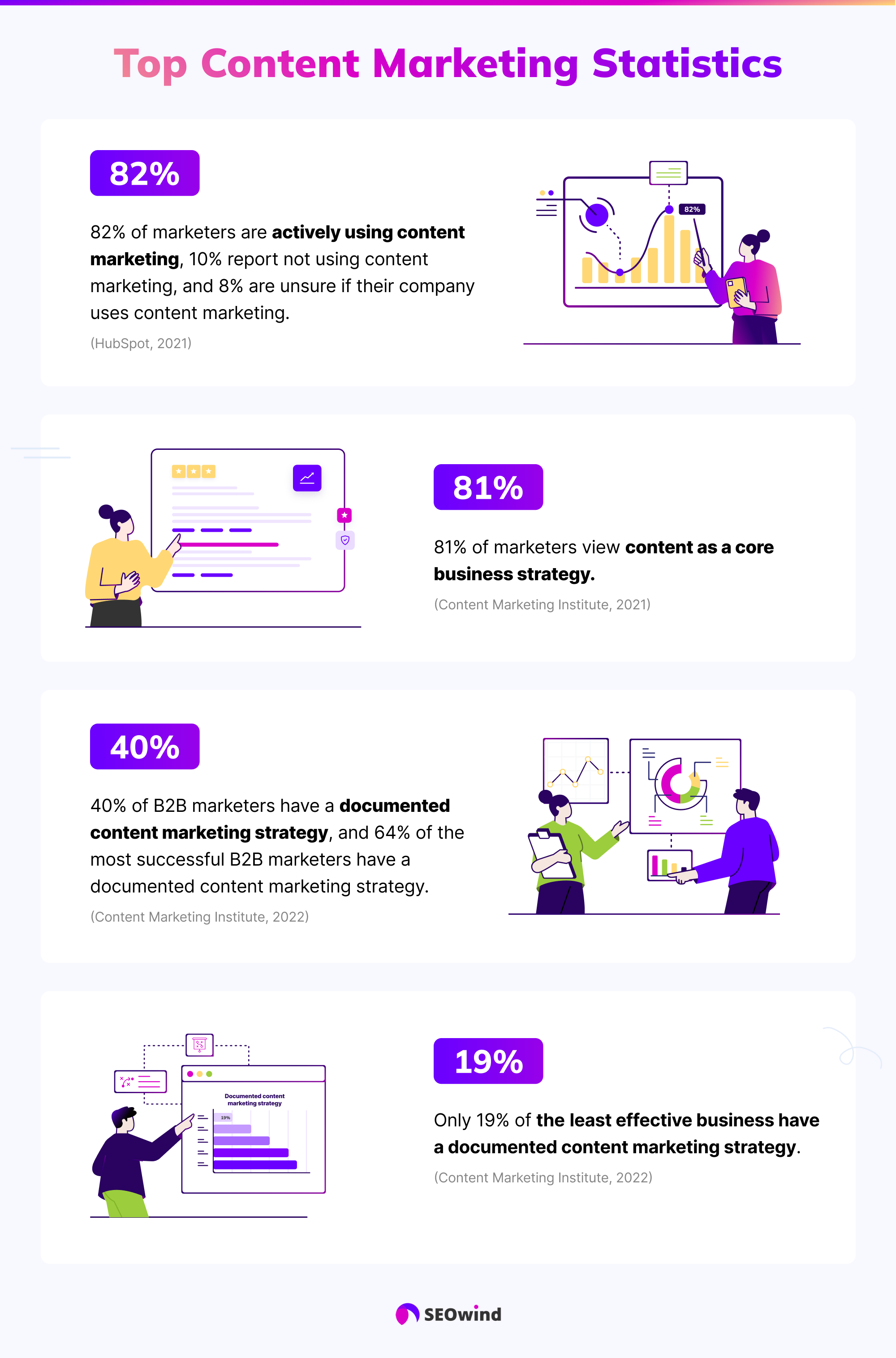
3. Utilize Storytelling In Content Marketing
Storytelling is a potent tool in the world of content marketing efforts, breathing life into brands and fostering deep connections with potential clients. This content hack offers the following benefits for a powerful content marketing strategy idea:
- Emotional Connection: Stories evoke emotions. Crafting narratives can tap into feelings like nostalgia, happiness, ambition, or even empathy. Depending on the type of blog post, use storytelling to create a bond with the audience that’s stronger than mere transactional relationships.
- Memorability: Our brains are hardwired to remember stories better than isolated facts or figures. A well-told brand story sticks, making it easier for consumers to recall and connect with a brand.
- Differentiation: In a saturated market, storytelling sets brands apart. It provides context, a backstory, and a soul, making a brand’s value proposition more than just a list of features or benefits.
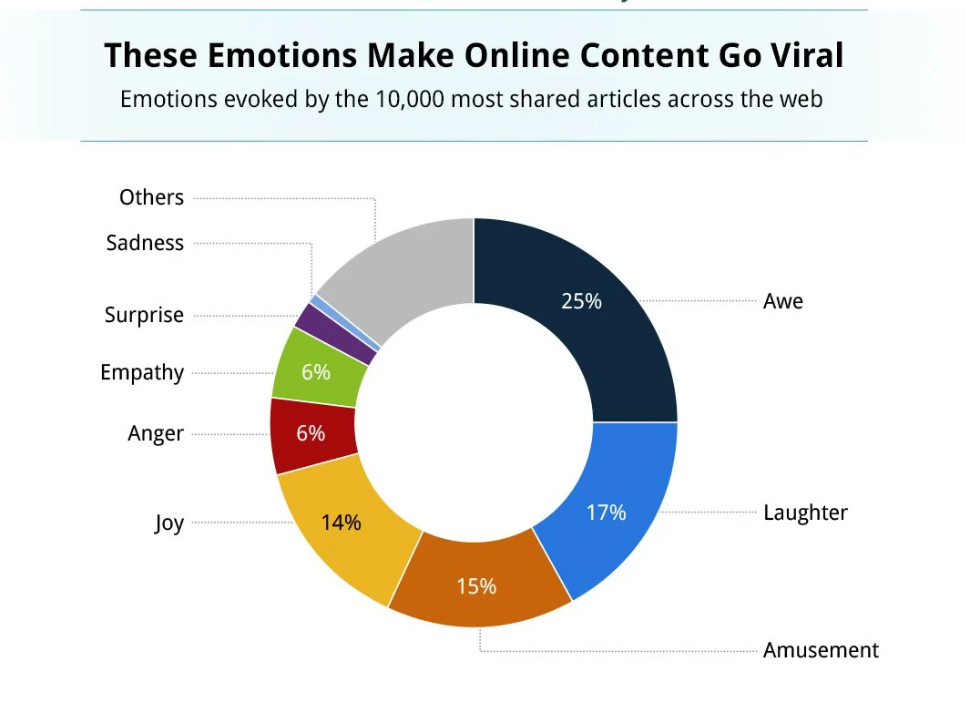
For example, National Geographic, known for sharing content with a rich history of exploration and storytelling, brilliantly integrates this ethos into “Dan’s Blog“. Through vivid narratives, Dan’s experiences come alive, transporting readers to remote corners of the world. The blog immerses readers in the cultures, landscapes, and natural wonders he encounters.
Each entry has a story, evocative photography, and personal anecdotes. The blog doesn’t just share facts; it crafts stories that resonate on a deeply human level. It captures the essence of exploration and discovery that National Geographic champions. This storytelling approach deepens reader engagement, making every journey with Dan a memorable experience.
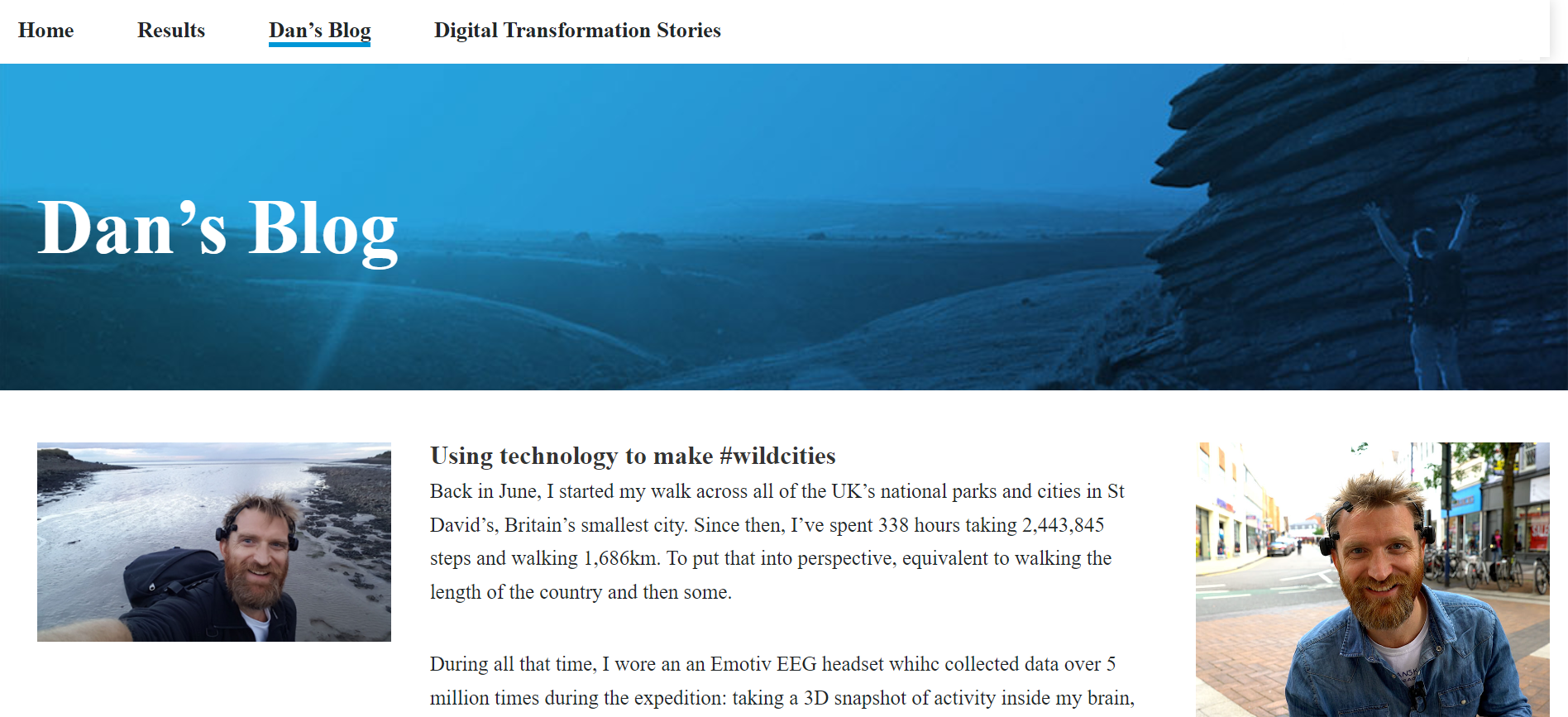
4. Optimize Content For Voice Search
By 2025, 75% of U.S. households are expected to own a smart speaker. As tons of people employ voice commands to ask questions or search for products, you should adapt your content strategies accordingly.
To cater to voice search, use:
- Long-Tail Keywords: Voice searches are conversational. Instead of “content marketing tips,” users might ask, “How can I improve my content marketing?“
- Local SEO: Many voice searches are local. Make sure your business details are consistent across all platforms and optimize for phrases like “near me.”
- Question-Based Queries: People often pose direct questions to voice assistants. Including content that answers the “who,” “what,” “where,” “when,” and “how” questions can help in capturing voice search traffic.
- Schema Markup: This is a code added to websites that helps search engines provide more informative results. Using schema can help in giving precise answers to voice search queries.
5. Update Old Content Regularly
Content isn’t a one-and-done deal. As trends change, information gets updated, and search algorithms evolve, your previously well-performing content might start to get irrelevant and lose rank.
For business owners, you need a proactive action strategy to revamp content. At least every 6 months, revisit your top-performing blog posts, especially list posts or types of content that might have changed.
Update statistics, introduce fresh images, or even discuss shifts in company culture and their implications. It’s about giving careful consideration to the reader’s expectations and ensuring they always encounter up-to-date information on your site.
Let’s delve deeper into content upgrade strategy:
- Boost SEO Rankings: Search engines have a penchant for fresh, updated, and consistent content. Improve old articles, whether it’s an original blog post or more general content. It signals to search engines that your content stays active and valuable.
- Drive Instant Traffic: Integrate SEO content writers’ recommended keywords and reflect current information so you attract a new audience segment, one that might’ve bypassed the original content.
- Enhance Authority: Make sure your content stays current as it fortifies your brand’s position as an authoritative and reliable source within your industry.
- Optimize Conversion: Perhaps an older piece of amazing content has CTAs or links that are no longer relevant. Refresh these elements to align more closely with your evolving content marketing plan.
Expert Advice:
Use a content calendar to keep your content organized and publish-ready. It not only helps in planning new content but also in determining when to revisit and update existing ones.
6. Embrace Social Proof
92% of consumers trust organic, user-generated content more than traditional advertising. Consumers are often skeptical of brands’ self-promotion. They’re more inclined to believe peers, friends, or influencers. Social proof offers third-party validation that a product or service is worth the investment.
With a plethora of options available, decision-making can be overwhelming. Social proof helps potential customers navigate choices. Here are ways to integrate social proof:
- Customer Testimonials: Showcase genuine feedback from satisfied customers on your website or marketing materials.
- Case Studies: Detail accounts of how your product or service solved a specific problem for a client.
- User-Generated Content: Encourage customers to share content on their experiences through social media platforms. Reposting their pieces of content will provide authenticity to your brand.
- Badges & Certifications: Display any industry-related certifications, awards, or recognitions your business earned.
- Real-Time Statistics: Showing live data, like “5000 people are viewing this product now” or “1000 people signed up this week,” can create a sense of urgency and popularity.
Let’s consider the example of this marketplace for paid Discord servers featuring “live recent activity” of users and buyers. This technique suggests the credibility and popularity of the platform to new visitors. Additionally, it triggers a sense of FOMO (Fear of Missing Out), nudging visitors to act swiftly.

7. Leverage Guest Blogging
Tap into the power of writing articles for other websites or blogs, turning this practice into a robust marketing tool. When you guest post on established platforms, you not only introduce yourself to a broader audience but also amplify their brand’s reach so your guest blogging game significantly drives qualified traffic back to your original site.
Additionally, publishing compelling content on trusted, reputable sites enhances one’s authority in their niche. When blog readers see content on familiar platforms, inherently begin associating credibility with the guest writer. Also, benefit from online writing services that can help polish your work and expand your reach to a wider audience.
From an SEO standpoint, securing a backlink from a high-authority domain can elevate one’s own site’s search ranking. Beyond these technical advantages, guest blogging fosters genuine, long-term relationships within the industry, opening doors to future collaborations.
8. Collaborate With Influencers
It’s one of the dynamic social media marketing strategies where brands partner with individuals who have established credibility and a sizable following on social media channels. These influencers resonate with specific target audiences, making their endorsements more impactful than traditional advertising.
Influencer collaborations can range from product reviews, testimonials, sponsored posts, and giveaways, to joint product launches. The authentic connection influencers share with their followers means their recommendations often feel more genuine and trustworthy, amplifying your business goal.
In an age where consumers are wary of overt advertising, influencer collaborations offer a more organic and relatable way to showcase products and services.
Influencers, especially micro-influencers, can vouch for your brand’s credibility. It’s not about the number of followers but the engagement they get. A smaller influencer in your niche can yield better results than a celebrity with a diverse follower base.
Don’t overlook blogger outreach either; the right collaboration can drop your bounce rates and skyrocket your sales conversion rates. especially when complemented by ecommerce CRO services.
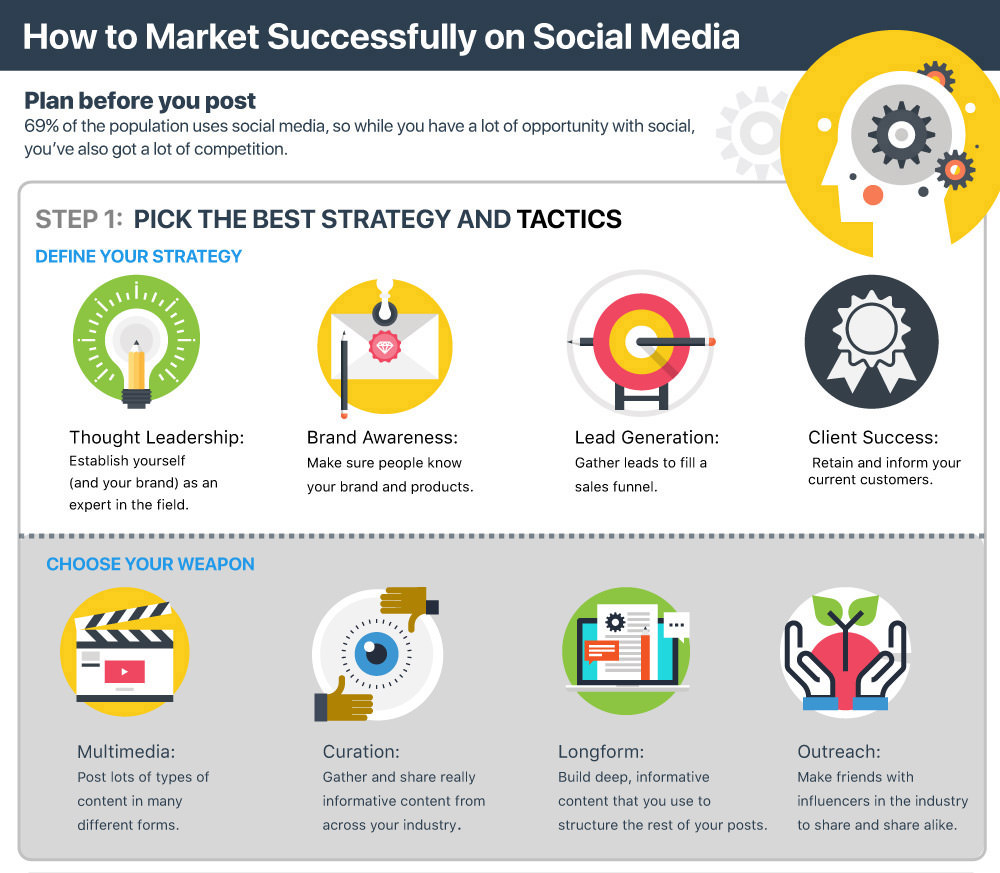
9. Engage With Interactive Content
Interactive content actively engages users, making them participants rather than passive consumers. It fosters deeper engagement, better retention and comprehension of information.
In an era where attention spans are dwindling, interactive content makes sure audiences are not just scrolling by, but genuinely interacting and connecting with a brand’s message. This type of content turns casual browsers into blog subscribers.
This content serves as a gateway to capture invaluable user data, shedding light on customer inclinations and behaviors. These user data insights empower you to refine your content marketing methods, curating more tailored campaigns chock-full of relevant content.
This approach often increases the chances of creating viral content, especially when you adopt strategies rooted in successful content curation. Here are innovative hacks to boost your brand’s interactivity:
- Calculators: If you’re in the finance or health industry, offer calculators. For weight loss, provide a ‘Calorie Deficit Calculator’.
- Interactive Infographics: Instead of a static image, have elements that pop up with more information or take readers to different sections when clicked.
- Quizzes: A favorite of many and can also be used to segment your audience. For instance, a skincare brand can create a quiz titled “What’s Your Skin Type?” and suggest products accordingly.
10. Engage With User Comments & Feedback
When you actively respond to comments, you foster a sense of community among your readers. It makes them feel seen, valued, and heard. Moreover, when you transparently respond to criticism, it solidifies your brand’s accountability and improves audience trust. To encourage feedback, end your blog articles with a question or a prompt for readers to share their views.
High-value comments boost your website traffic. When someone showers praise on your content or services, acknowledging it with a simple ‘thank you’ or expressing gratitude can further endear your brand to them.
On the other hand, negative comments or criticism, while potentially disheartening, present an opportunity. Address them head-on, with professionalism and a solution-oriented approach. Showcase your brand’s commitment to customer satisfaction and continuous improvement.
Expert Advice:
Take all kinds of customer feedback as valuable comments. Ignoring or deleting negative feedback can often backfire, creating a perception of a brand that’s unresponsive or uncaring. Instead, by taking the time to understand the concerns, rectify mistakes, or simply show empathy to turn a negative situation into a positive one.
11. Utilize The 7-Rule Email Marketing
Advanced email marketing tactics are not just about sending out promotional emails. They’re about strategically nurturing email leads and optimizing for the highest engagement and conversion.
One of the key principles is the “7-rule email marketing,” which suggests that a potential customer needs to hear the advertiser’s message at least 7 times before making a buying decision. It involves consistent follow-up emails, designed to engage the recipient progressively and lead them down the sales funnel.
To do this, segment your audience and send targeted messages, making sure that each email is highly relevant to its recipient. Conversion rate optimization (CRO) plays a pivotal role in refining these messages, from tweaking subject lines to perfecting the call-to-action.The use of autoresponder emails, triggered by specific user behaviors, can further enhance engagement. For instance, if a shopper abandons their cart, an automated email can remind them of their unfinished transaction
Read More:20 Email Marketing KPIs You Need To Track Performance
.
12. Utilize SEO Best Practices
Search Engine Optimization (SEO) makes sure your content reaches the right audience by appearing prominently in search engine results. An effective SEO content strategy makes the difference between being seen and being overlooked.
Here’s a breakdown of utilizing SEO best practices:
- Keyword Research: Identify the keywords your target audience uses to search for information before crafting content. Keyword research tools like Google Keyword Planner, Ahrefs, or SEMrush can assist in finding relevant keywords.
- Optimized Titles & Meta Descriptions: Your webpage’s title and its meta description are among the first things search engine users see. Make them compelling and make sure they contain your primary keyword.
- Mobile Optimization: With the increasing use of mobile devices for web browsing, mobile-friendly content is in high demand. Google, for one, prioritizes mobile marketing techniques.
- Optimize Images: Use relevant images, make sure they’re compressed for faster loading, and always add alt text with relevant keywords for better accessibility and SEO.
- Link Building: Internal links guide users to more of your content. External links (from authoritative sites) can boost your credibility. Also, strive to get backlinks from reputable sources in your industry.
Read More:On- page SEO
13. Use Powerful CTAs
Every piece of content should have a purpose. Your click-through rates (CTAs) direct readers on what to do next, aiding in their buying journey. CTAs are the bridges that lead potential customers from mere interest to conversion. It directs your ideal customer toward your desired goal, be it making a purchase, signing up for a newsletter, or turning visitors into readers.
Actively monitor CTA click-through rates to gauge the effectiveness of your content or campaigns, and make necessary adjustments for optimization. Don’t forget to leverage smart designing tools to create enticing CTAs.
10 elements of a powerful CTA:
- Mobile-optimized
- Active voice language
- Visually striking design
- Strategically positioned
- Action-oriented wording
- Clear & concise language
- Evokes emotion or curiosity
- Creates a sense of urgency
- Easy to understand & act upon
- Contrasting action button color combination
Let’s consider this in-home dog training website leveraging a “Get My Instant Quote” CTA button on their homepage. It directly addresses potential buyers’ key concerns, primarily cost. This immediate access to pricing offers transparency and helps them in the decision-making process.
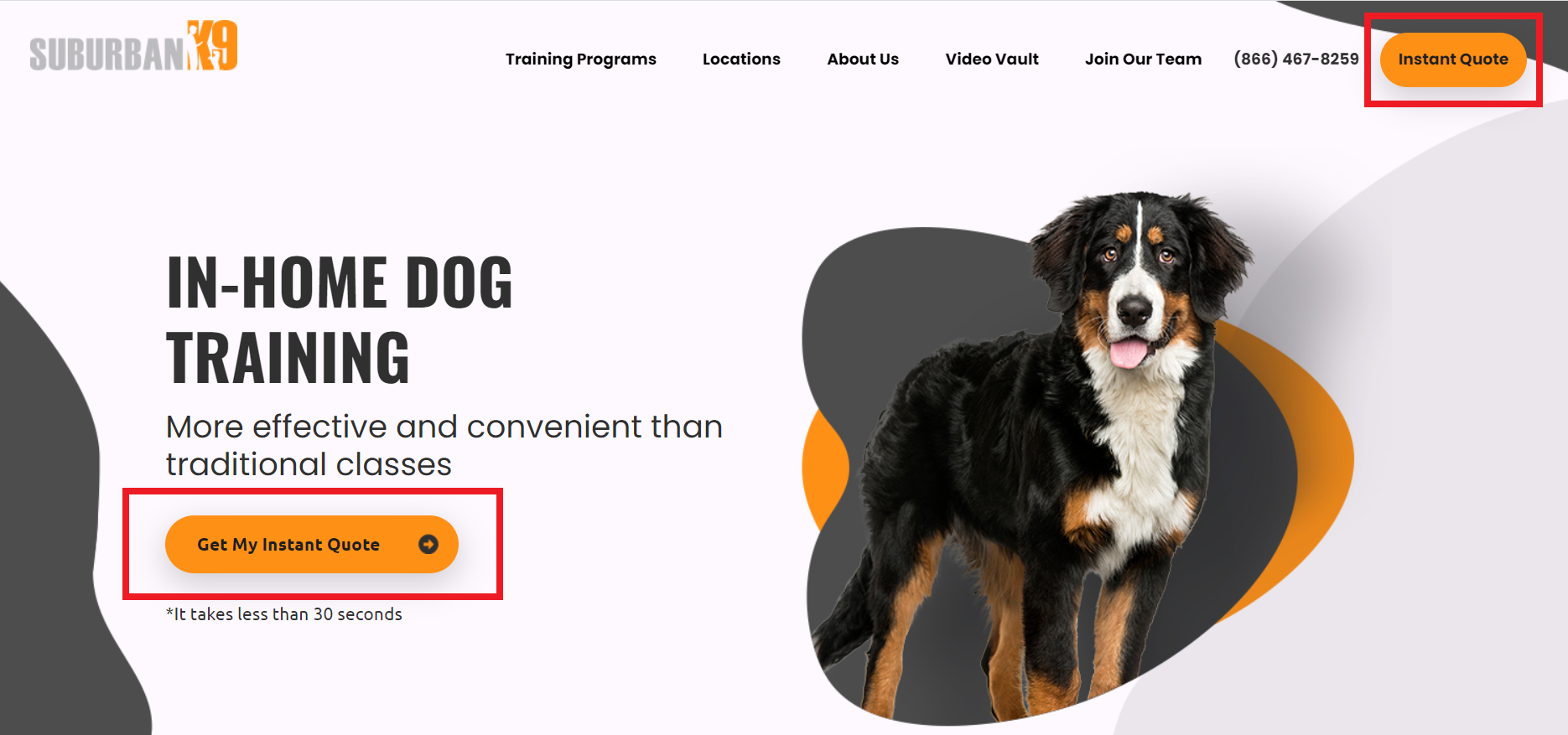
Furthermore, by prompting users to input details, the business seamlessly captures valuable leads, even if an immediate sale doesn’t happen. The blend of upfront value and the perceived personalized touch of a tailored quote gives the website a competitive advantage.
Essentially, this CTA acts as a dual tool: an instant value provider for the user and a lead generation mechanism for the business.
Conclusion
Content marketing is a powerful tool that bridges brands with their audiences, fosters trust, and drives conversions. As you stand at the crossroads of content creation, ask yourself: How can I elevate my narratives to craft lasting impressions and tangible results?
Every content type be it video, blog posts, list articles, graphic, audio content, etc., is a golden opportunity. Embrace and apply the content marketing hacks that we’ve unveiled to craft an influential narrative that resonates, engages, and sells.
However, managing content creation while ensuring quality backlinks can be a daunting task. Feeling the need for a partner to make sure your content drives sales, endorsed by quality links?
Visit VH-Info to build authoritative links for your marketing content. With a suite of premier link-building services, VH-info guarantees that your top-notch content isn’t just seen, but revered. It’s about transforming your content from being just another voice in the crowd to becoming the conversation leader.
Writer Information
Burkhard Berger is the founder of Novum™. He helps innovative B2B companies implement revenue-driven SEO strategies to scale their organic traffic to 1,000,000+ visitors per month. Curious about what your true traffic potential is?

